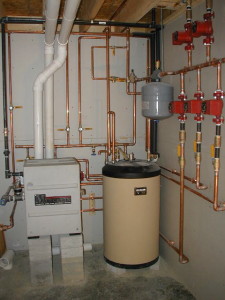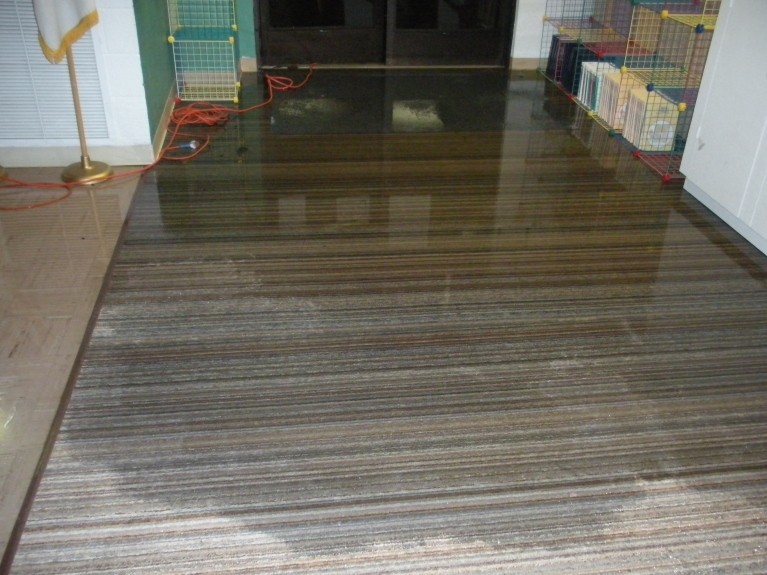They are making several good pointers about Water Heater Burst overall in this content down below.

Whether it is situated in the cellar or a separate room, broken water heating units can trigger tension. Having no hot water supply is additionally problematic.
Call the Plumber
After doing the very first 2 safety actions, you have to call your plumber to come right away to repair a fractured water heating system. There are usually indicators that your aging water heating unit has sediment build-up in the inside.
Instead, as soon as you find these indications, have actually an expert come to inspect your water heating unit container. Usually, water heating units have a lifespan of concerning 8 to 12 years.
Cut Off the Cold Water Supply
Cut off the containers touch water supply from the source. When your container is in good problem, the cold water stops filling up when the container is full. If you can not locate it or reach it, you should transform off that main water supply line outside your home.
Shut Down Power Source
Before calling the plumber, closed off a gas water heating unit by turning the temperature level dial. This will stop electrocution, particularly if there is a leakage as water is a conductor. Commonly, the home heating aspect closes off when the water strikes a details temperature.
Tidy up Home
After calling the plumber, record damages by taking notes and also pictures so you can claim your house owner's insurance policy. Get rid of any kind of standing water to avoid mold and mildew and also mildew growth. If you have a completely submersible water pump, make use of that to drain pipes the water.
Remember, if you observe any type of concerns with your hot water heater, call the pros immediately. You can not take this issue lightly since a malfunctioning thermostat can increase water temp to a precariously high level, resulting in unintentional burns. A damaged heating system stress relief valve can also trigger an explosion. For best outcomes, get a yearly check so your system obtains examined, cleansed, drained, and also filled up, ensuring optimal efficiency.
After doing the first two safety and security steps, you must call your plumber to come right away to deal with a fractured water heater. Instead, as soon as you detect these signs, have actually a specialist come to examine your water heater storage tank. Prior to calling the plumber, closed off a gas water heater by transforming the temperature dial. If you have a completely submersible water pump, use that to drain pipes the water. Bear in mind, if you see any kind of concerns with your water heating system, call the pros right away.
8 REASONS YOUR HOT WATER HEATER IS NOT WORKING & HOW TO FIX
Water Heater Problems & Solutions
Loose or Damaged In-Line Valve
Unlike a water leak near the bottom of your water tank, a water leak on top of your system can be easily fixed. A common cause of water tank leaks includes a loose in-line valve. This is a handle that is located at the top of the water tank that is engineered to activate or deactivate the flow of water. To fix this problem, you will need to secure the nut that holds the ball or in-line valve in its location. If the leak becomes more severe once it is tightened, you will be required to travel to your local hardware store to purchase a new in-line valve for your water heater.
Damaged Pressure Relief Valve
Most types of water heaters are equipped with a pressure relief valve that is engineered to discharge pressure from the water tank when it becomes too high. If this valve on top of your water heater begins to leak, we recommend purchasing a new one online or from your local store. The process of removing and replacing pressure relief valves is not complicated.
No Warm Water
If you have an electric water heater in your home, the most typical cause of a lack of warm water is a broken heating element. Your water heater is equipped with two heating elements that are tasked with heating incoming water in the water tank. Once a heating element begins to malfunction, you will have little to no hot water to use for showering, cleaning, and laundry.
Low Supply of Hot Water
Are you continuously running out of warm water? This issue may be a byproduct of a cracked dip tube. This tube is engineered to push cold water to the base of your water tank to be heated. Once a crack or hole begins to form in the dip tube, the incoming supply of cold water may be released near the top or middle of your tank. As a result, the cold water on top of the tank will be sent to the faucets and showers in your house. This hot water heater problem can only be fixed by replacing the dip tube on your system. Since the process of installing a new dip tube is complex, we recommend calling a certified technician for help.
A low supply of warm water may also be a signal of excess sediment buildup in your water tank. As your water heater reaches the middle of its life cycle, minerals in water including magnesium and calcium will begin to collect at the base of the water tank. As the minerals continue to grow, there will be less room in the water tank to store hot water. To resolve this problem, flush your water heater to remove the excess minerals.
Water is Too Warm or Cold
If the water in your shower feels uncomfortable hot or cold, you can adjust the temperature of your water by changing the settings on your thermostat. Setting the temperature to 120 degrees Fahrenheit may help you save money on your utility bills. This is an excellent temperature to use if you’re worried about scalding or skin irritation. Does this temperature feel too cold? You may also adjust the thermostat to 140 degrees Fahrenheit to make your showers more pleasant. If your hot water heater is not working when you change the temperature, this is an indicator of a broken thermostat. Immediately find a certified plumbing or heating contractor in your area to repair or replace your thermostat.
Low Water Pressure
Low water pressure is not always caused by a malfunctioning water heater. If you live in an older home with smaller water pipes, the flow of water will be restricted prior to reaching our kitchen or bathroom skins. The only way to eliminate this hot water heater problem is to connect new ¾-inch water lines to your system. Another type of problem that may negatively impact your water pressure includes calcium deposits in water pipes.
As magnesium and calcium begin to form in your pipes, the diameter of your water lines will become smaller. As a result, the warm water from your water heater will not be able to travel in an efficient manner to your sinks or appliances. Since the process of replacing water pipes includes removing drywall, an average homeowner that does not have a plumbing license will not be able to fix this hot water heater problem.
https://www.wmhendersoninc.com/blog/8-reasons-your-water-heater-is-not-working-how-to-fix/

We hope you enjoyed reading our post about What Do You Do When Your Water Heater Bursts?. Thanks a ton for taking a few minutes to read our posting. I beg you take the time to distribute this blog if you liked it. Thank-you for going through it.
Call us now!